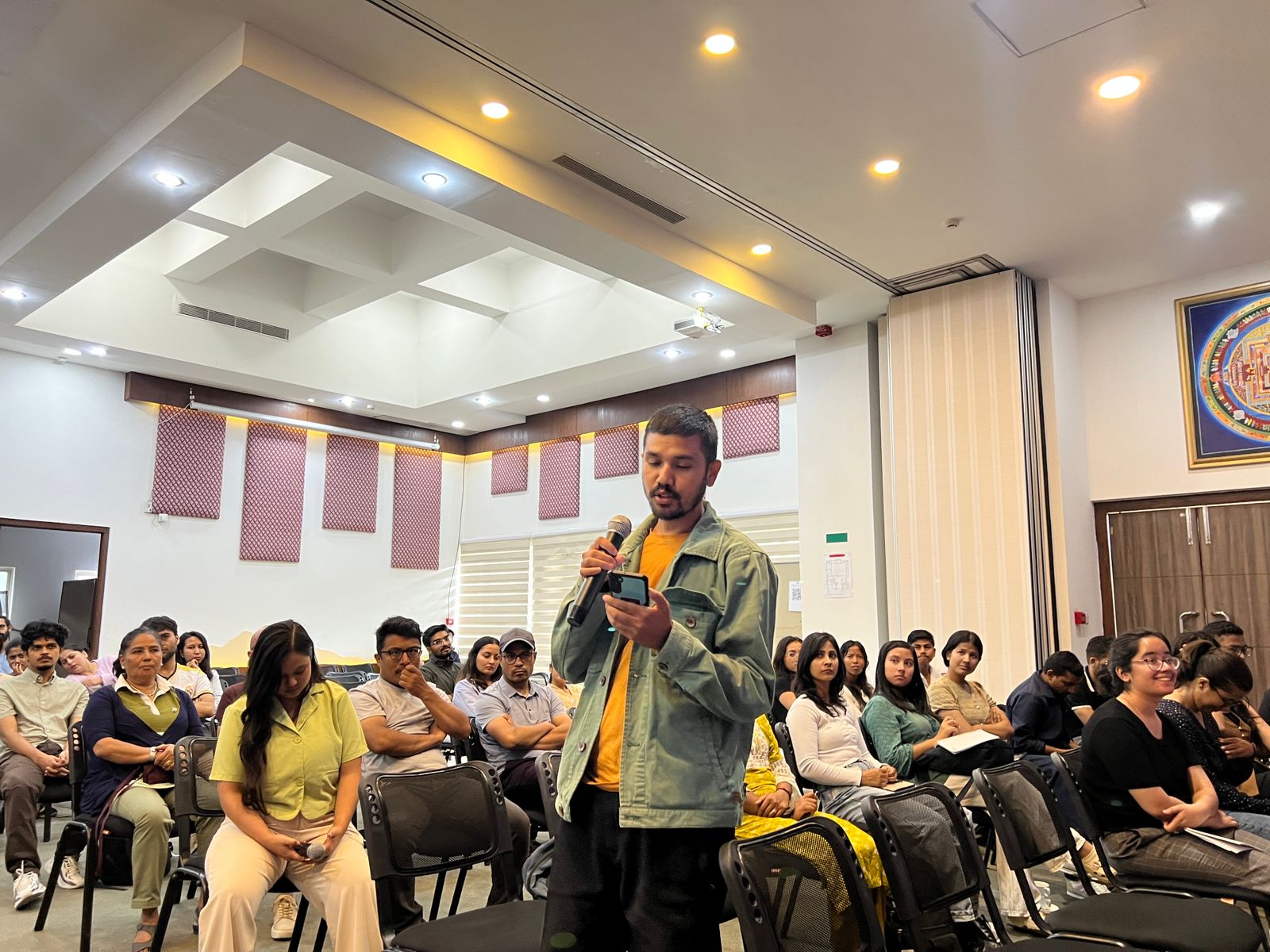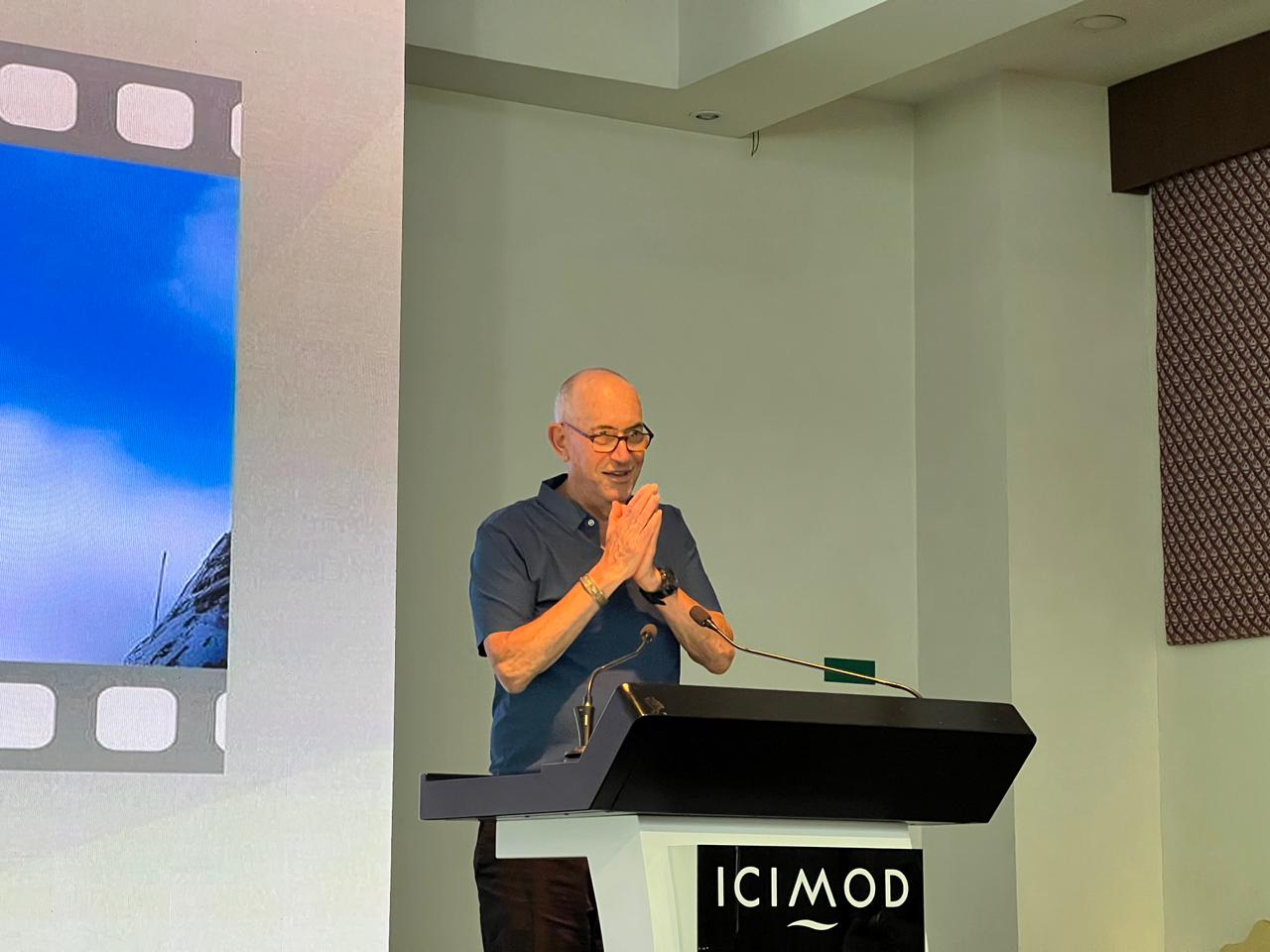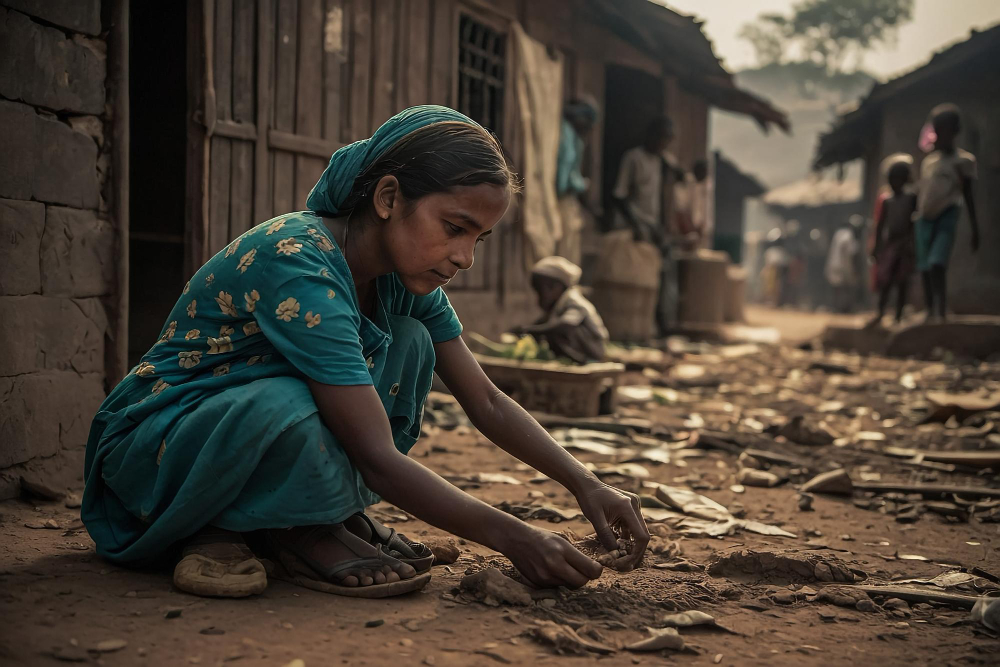The event focused on exploring the vital role of fungi in sustaining mountain ecosystems. It highlighted the integration of traditional knowledge and scientific research through film and expert discussions.

July 26, 2025
Lalitpur

A participant shared his reflections during the documentary screening's Q&A session on July 25 in Lalitpur. credits: Sakshyam Bhandari
On Friday, attendees gathered at ICIMOD’s headquarters in Khumaltar to explore how fungi support mountain ecosystems and connect biodiversity with local livelihoods. They also watched a film that provided deeper insights into fungi's critical role in sustaining these ecosystems.
Sarala Khaling, Head of Resilient Economies and Landscapes, opened the event with a warm welcome and emphasized the vital role of fungi in mountain ecosystems. She spotlighted the success of the Living Mountain Lab, a once-degraded area now thriving with over 100 bird species and 280 butterfly species, as an example of ecosystem restoration and sustainable resource management. Khaling reaffirmed that food security and livelihood improvement remain ICIMOD’s core priorities.

Rick Sibler addressed the audience from the podium at ICIMOD headquarters in Lalitpur on July 25. credits: Sakshyam Bhandari
Rick Silber, Executive Producer, introduced the film, noting that it reveals the hidden networks that sustain life in mountain ecosystems. The documentary highlights the intricate relationships between fungi and their environment, portraying the delicate balance essential for ecological health.
Shiva Devkota, mycologist, took the stage to share his expertise on mushrooms, describing them as a multifaceted group intertwined with society, culture, and livelihoods. He noted the dangers posed by toxic mushrooms, which claim 30 to 40 lives annually in Nepal.
The screening began promptly, immersing the audience in the fascinating world of fungi. It introduced viewers to a variety of mushroom species, including some previously unrecorded, and highlighted the essential role fungi play in helping plants survive the harsh Himalayan environment.
The documentary also celebrated Nepal’s rich cultural diversity, highlighting the people’s resilience, religious harmony, and deep connection to nature, including the high-altitude mushrooms that thrive in these landscapes.
During the Q&A session, Dr. Devkota and Rick Silber answered questions about fungal evolution and the discovery of new mushroom species, helping bridge knowledge gaps. Their insights underscored the ongoing efforts to document fungi found in Nepal’s high-altitude regions.
Dr. Devkota also explained how every tree in the forest is interconnected through an underground “Wood wide web” of mycelium, a crucial fungal network that supports ecosystem health and resilience.
Overall, the event bridged science and tradition, deepening understanding of fungi’s indispensable role in mountain ecosystems and reinforcing the urgent need to conserve these organisms for future generations.

By sharing valuable information and sparking inspiration, we aim to foster growth, innovation and brighter opportunities for future generations.
Contact us